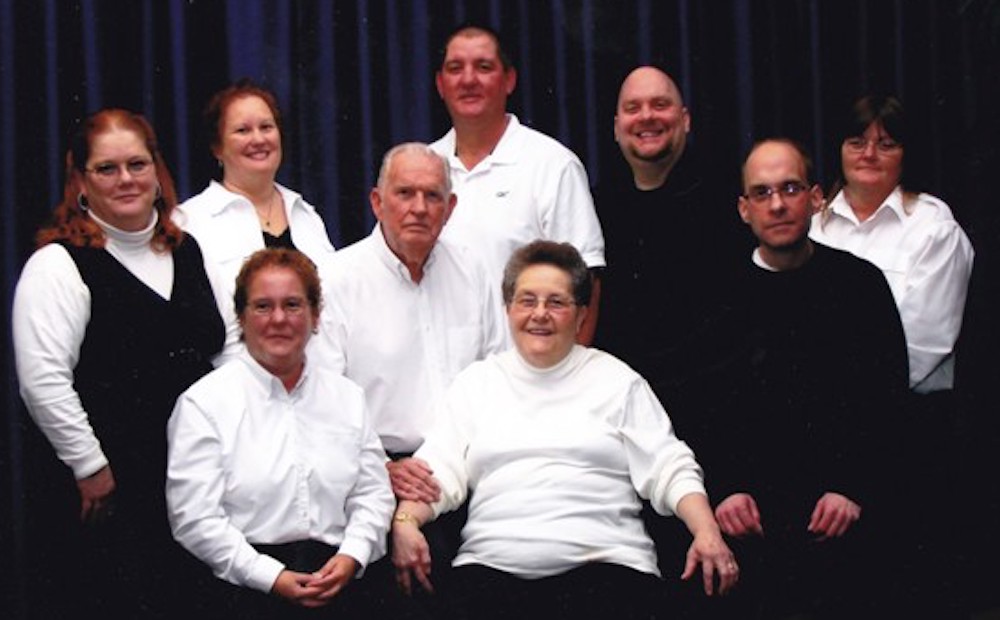‘It’s scary how fast it is’: Walk to raise money for pancreatic cancer research set for Saturday in Hannibal

HANNIBAL, Mo. — The statistics aren’t in Erin Hedges’ favor, but she remains determined.
Hedges is helping coordinate the Lustgarten Foundation’s sixth annual Pancreatic Cancer Research Walk on Saturday at the Sodalis Nature Preserve.
However, she doesn’t see from year to year many of the people she’s trying to help.
“When I started (the walk), pancreatic cancer only had a five-year survival rate of eight percent,” Hedges said. “In the seven years that I’ve been doing this, (the five-year survival rate is) only 10 percent now. We only have one survivor in seven years, and right now, she’s still fighting pancreatic cancer. Unfortunately, she was diagnosed with breast cancer on top of that. It spreads quickly and starts working on other parts of your body.”
Hedges’ grandfather, Albert Barnard of New London, Mo., was diagnosed with pancreatic cancer in August 2014. He died on Dec. 31, 2014.
Five-year survival rate for people with pancreatic cancer is 10 percent
“Before we knew what was happening, or before we could even really do any research on our own, he died,” Hedges said. “So he only got to fight for about four short months, and then he was gone. We had no idea what to even do at that point, because it was new. Once we started researching (pancreatic cancer), you realize that it’s one of the fastest moving cancers.
“It’s scary how fast it is. Once it hits your pancreas, it just goes downhill from there pretty much.”
Pancreatic cancer is difficult to find early. The pancreas is deep inside the body, so health care providers can’t feel or see early tumors during routine physical exams. The American Cancer Society reports people usually have no symptoms until the cancer has become very large or has already spread to other organs. No known screening test lowers the risk of dying from pancreatic cancer.
The Pancreatic Cancer Action Network reports the five-year survival rate for people with pancreatic cancer is 10 percent. That rate was as low as six percent in 2014.
“I got to meet about four or five participants before they passed away, and I got to hear their story and meet their family, Hedges said. “Unfortunately, they didn’t get to make it back for a second year.”
Whipple procedure may extend life of someone with pancreatic cancer
For some pancreatic patients, a complex surgery known as the Whipple procedure may extend life and could be a potential cure. Also known as pancreaticoduodenectomy, the Whipple procedure involves removal of the “head” (wide part) of the pancreas next to the first part of the small intestine (duodenum).
The website WebMD.com reports people who undergo a successful Whipple procedure may have a five-year survival rate of up to 25%.
“After certain stages, you become unqualified for that surgery,” Hedges said. “At a certain point, nothing can be done.”
Lustgarden Foundation helps fund pancreatic cancer research
Registration for Saturday’s walk begins at 8 a.m. Walkers registering ahead of Saturday should turn in $50 in collected pledges and/or personal contribution. Walkers registering on Saturday must turn in $60. The walk begins at 9 a.m.
Walkers can turn in collected donations and personal contributions on Saturday. Your fundraising efforts can count toward your participation fee. All money raised goes to advancing research aimed at early detection methods, better treatments and ultimately, a cure.
Donors should make checks payable to the Lustgarten Foundation, America’s largest private foundation dedicated to funding pancreatic cancer research. Based in Woodbury, N.Y., the foundation supports research to find a cure for pancreatic cancer, facilitates dialogue within the medical and scientific community, and educates the public about the disease through awareness campaigns and fundraising events. The Lustgarten Foundation has directed $132 million to research since its inception.
Hedges: ‘Your heart just breaks all over again’
Participants will walk (or run or bike) a three-mile trail around a park that is home to 211,000 endangered Indiana bats. There is a semi-steep hill, as well as an alternative route for those who believe the hill is too much. Dogs on a leash can participate. All routes are handicap and stroller accessible.
Free parking will be available on-site within walking distance to the Folklife Festival and all the downtown activities.
Hedges continues her goal of bringing awareness to pancreatic cancer.
“I can fight so hard for so long, but then you know, another family loses somebody else,” she said. “Your heart just breaks all over again, and the next year, you do it all over again. It’s been a rough, rough six years trying to bring awareness to this area. It’s about raising money and raising awareness and making sure people are noticing this cancer.
“Sometimes the news is discouraging, but I’m also very determined. There’s still hope out there.”
Miss Clipping Out Stories to Save for Later?
Click the Purchase Story button below to order a print of this story. We will print it for you on matte photo paper to keep forever.

